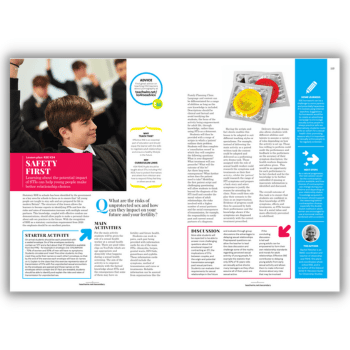Ticking the wrong boxes – Good lessons don’t always need lesson plans

Demanding that teachers generate numerous lesson plans before entering the classroom is to set them a near-impossible and ultimately pointless task, argues John Lawson…

- by John Lawson

Something is decidedly wrong when teachers are too busy scribing lesson plans to prepare lessons properly.
Throughout my NQT year, I was required to hand in 23 detailed plans in advance every Monday. Each plan required an aim, at least three objectives, a starter, development strategies 1 and 2, a concluding strategy, homework explanation and evidence of differentiation – plus SEND provisions and allowances.
Copies of all differentiated resources and tests were stapled to my lesson plans. I was allotted two 35-minute planning periods a week, one of which was spent with my Head of Department who would often excoriate most of my efforts: ‘Ridiculous … redo these.‘ I almost suffered a breakdown trying to conform to her rigid ideas of perfection.
This was 1993, with no internet or email. I was earning £13,000 a year, there were holes in the soles of my shoes and I was skipping meals to pay the bills.
A callous burden
For ECTs in 2022, not enough has changed. The process of submitting accurate lesson plans a week in advance continues to be an exhausting one and rarely achievable, given that Week 8 plans depend on everything going according to plan in Week 7. How often does that happen?
By mid-October, my own lesson plans would have typically become works of fiction – mere meat thrown to ravenous box-tickers. I’d arrive at school at 7am each morning, sip some coffee while breaking bread with the janitor in his bunker, and then secretly scribble some helpful lesson notes. Those 15 hours spent each week on planning blighted my weekends.
So imagine my astonishment when I read recently of a bill passed by the Indiana House of Representatives, requiring its teachers in the state to post lesson plans online for the entire year. In the midst of a pandemic, how could anyone impose such a callous burden and hope to keep their underpaid, exhausted teachers on board?
One can just picture the lawyers of the most litigious nation on Earth lining up to help themselves to this Hades-sent gravy bowl: ‘Mr. Lawson – you have presented yourself to this court, under oath, as a certified master teacher…yet exhibit 127b establishes that you egregiously misled the children entrusted to your care…‘
The thing is, though, busy administrators rarely read lesson plans – an observation once shared with me by a seasoned cynic who regularly cut and pasted impressive-looking plans that he never taught (and for which he never got caught).
Mid-lesson epiphanies
Meticulously crafted lesson plans are no guarantee of engaging lessons. Teachers will often devise terrific ideas in their hearts and heads that are difficult to convey on paper. Some of my best teaching moments have often come from mid-lesson epiphanies. We need to address the countless hours that exhausted teachers spend on pro-forma lesson plans, while still recognising importance of skilful planning and acknowledging the need for an agreed curriculum.
My own attempt at doing that took the form of a simple statement that for 15 years I would regularly submit to my Head of Department at the Florida High School where I was based: ‘I promise that I will teach our published programme, bell-to-bell every day with as much passion and skill as I possess.‘ I signed off on this annually, which obligated me to honour my pledge – and I did.
My advice to those elected representatives in Indiana is to ask themselves which other authorities in the world have ever made such demands of their educators. Because the extraordinary pressures that would consequently be placed on teachers at the end of the school year are impossible to deny.
Excellent teaching happens at the hands those who remain open to the limitless possibilities that emerge as a lesson unfolds. If we want teachers to continue sharpening their knowledge and skills, why subject them to pointless box-ticking labour?
If teachers are already doing their best every day, as the vast majority are, then formal lesson plans aren’t necessary. And if that’s the case, why should anyone expect rigid, long-range lesson planning to ever tick the right boxes in the first place?
John Lawson is a former secondary teacher, now serving as a foundation governor and running a tutoring service, and author of the book The Successful (Less Stressful) Student (Outskirts Press, £11.95); for more information, visit prep4successnow.wordpress.com or follow @johninpompano










